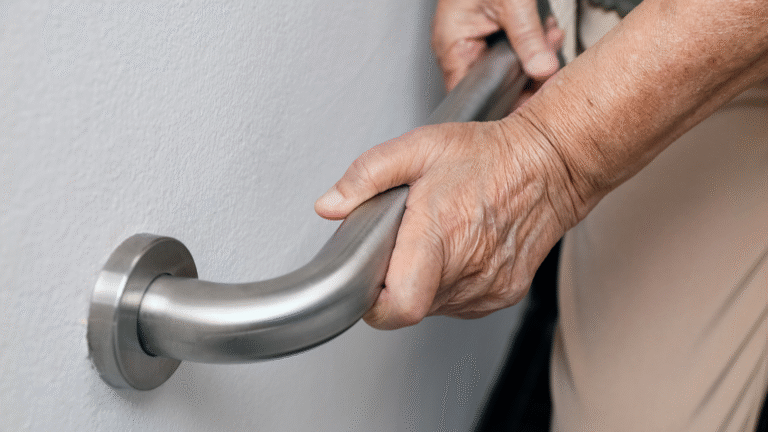Need Help at Home? We’re Just a Call Away. +1-781-457-6112

A Beginner’s Guide to Home Health Care: What Every Family Should Know
Navigating the world of healthcare for an aging parent, a spouse recovering from surgery, or a loved one with a chronic illness can feel overwhelming. Suddenly, you might find yourself in the role of a caregiver, or perhaps just trying to understand the best options available. One term that often comes up is “home health care.” But what exactly is it, and how does it fit into the broader landscape of care?
This guide is designed to be your first step, offering clarity on what home health care entails and helping you understand if it’s the right choice for your family.
What is Home Health Care?
At its core, home health care is skilled care provided in a patient’s home. This isn’t just about assistance with daily tasks; it involves medical and therapeutic services delivered by licensed healthcare professionals. The goal is to help individuals recover from illness or injury, manage chronic conditions, and improve their overall quality of life,1 all within the comfort and familiarity of their own home.
Think of it as bringing essential medical services usually found in a hospital or clinic directly to your doorstep.
Home Health Care vs. Hospice vs. Assisted Living: Understanding the Differences
It’s easy to confuse different types of care, but understanding their distinct purposes is crucial for making informed decisions.
-
Home Health Care: As discussed, this is skilled medical care delivered at home. It’s typically for individuals who are recovering, managing chronic conditions, or need professional medical oversight and therapy. It’s often episodic and aims for improvement or maintenance of health.
-
Hospice Care: Hospice focuses on comfort and quality of life for individuals with a life-limiting illness and a prognosis of six months or less. The emphasis shifts from curative treatment to pain management and emotional/spiritual support for both the patient and their family. While often provided at home, it can also be in dedicated hospice facilities.
-
Assisted Living: Assisted living facilities are residential communities that provide support with Activities of Daily Living (ADLs) such as bathing, dressing, eating, and medication management. They offer a social environment and amenities but generally do not provide skilled medical care. Residents are typically more independent than those needing home health care.
The Benefits of Receiving Care at Home
Opting for home health care offers numerous advantages that can significantly impact a loved one’s well-being:
- Comfort and Familiarity: Being in one’s own environment can reduce stress and anxiety, promoting faster recovery and a greater sense of security.
- Personalized Care: Care plans are tailored specifically to the individual’s needs, ensuring targeted and effective interventions.
- Independence: Patients often retain more independence and control over their daily routines compared to institutional settings.
- Family Involvement: Families can be more actively involved in the care process, fostering a stronger support system.
- Reduced Risk of Infection: Avoiding hospital or facility environments can lower the risk of exposure to infections.
- Cost-Effectiveness: For many, home health care can be a more affordable option than long-term stays in hospitals or skilled nursing facilities.
Common Services Offered in Home Health Care
Home health care encompasses a wide range of professional services, delivered by a team of specialists:
-
- Skilled Nursing: Registered Nurses (RNs) and Licensed Practical Nurses (LPNs) provide direct medical care, including wound care, medication management, injections, vital sign monitoring, and education for patients and families.
- Physical Therapy (PT): Therapists help patients regain strength, mobility, balance, and coordination after an injury, surgery, or illness. They develop exercise programs and assist with assistive devices.
- Occupational Therapy (OT): Occupational therapists focus on helping patients improve their ability to perform daily activities (ADLs) like bathing, dressing, and eating. They might suggest adaptive equipment or modify the home environment.
- Speech-Language Pathology (SLP): Speech therapists assist with communication disorders, swallowing difficulties (dysphagia), and cognitive impairments related to speech and language.
- Medical Social Services: Social workers provide counseling, connect families with community resources, and help navigate complex healthcare systems.
- Home Health Aide Services: Under the supervision of a nurse or therapist, home health aides can assist with personal care (bathing, grooming), light housekeeping, and mobility support.
How to Know When It’s Time to Consider Home Care
Deciding when to seek home health care can be a difficult decision. Here are some signs that it might be time to consider this option for your loved one:
- Recent Hospital Discharge: If a loved one is returning home after a hospital stay for surgery, a stroke, or a serious illness, home health care can provide essential follow-up care and help prevent readmission.
- Difficulty with Daily Tasks: Struggling with personal care, preparing meals, or managing medications independently.
- Chronic Disease Management: Needing professional oversight for conditions like diabetes, heart disease, or COPD to prevent complications.
- Frequent Falls or Mobility Issues: Concerns about safety due to unsteady gait, dizziness, or difficulty moving around the home.
- Cognitive Decline: While not a primary solution for advanced dementia, home health can support individuals with mild to moderate cognitive changes by ensuring medication adherence and a safe environment.
- Caregiver Burnout: If you, as a family caregiver, are feeling overwhelmed, exhausted, or unable to meet all of your loved one’s needs, home health care can provide much-needed support and respite.
- Unexplained Weight Loss or Changes in Behavior: These could be indicators of underlying health issues requiring professional assessment.
If you recognize any of these signs, it’s a good time to consult with your loved one’s doctor. They can provide a referral for home health care services and help you understand the specific needs.
Remember, home health care is about empowering individuals to live safely and comfortably in their own homes while receiving the professional medical attention they need. It’s a valuable resource that can bring peace of mind to both patients and their families.



